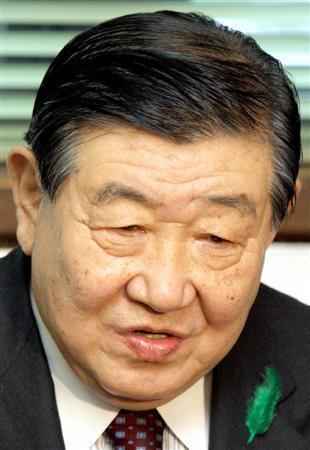
The devil made him do it.
Anyone remember this story from last month?
Masatoshi Wakabayashi resigned from the Upper House on Friday after he was admonished for pressing an electronic voting button of a fellow Liberal Democratic Party member seated next to him.
The Democratic Party of Japan submitted a motion to discipline Wakabayashi, 75, a former farm minister, to the chamber on Thursday.
LDP President Sadakazu Tanigaki urged Wakabayashi to take responsible action Thursday to avoid causing problems ahead of the Upper House election this summer.
If you’re like me, you probably shrugged it off as a joke, a non-story. He explained in Japanese 魔が差した which means “I don’t know what got into me” but could be literally translated something like “a devil made me do it.” Wakabayashi had already announced his intention to retire at the end of the Diet session, but this has got to be the worst case of senioritis ever. A seat in the Diet is nothing to take lightly, even if you’re in the less powerful upper house.
But with the ruling coalition’s majority so thin, this is actually kind of a big deal, especially now that the DPJ/PNP/SDP ruling coalition has broken up.
This weekend, PM Hatoyama fired Mizuho Fukushima from his cabinet over their disagreement on relocating Futenma air station. In response, Fukushima’s Social Democratic Party decided to quit the coalition. This development probably has some serious implications for PM Hatoyama, but for this post I just want to focus on how it affects the coalition’s standing in the Diet as the session nears its end.
This shrinks the DPJ/PNP’s upper house majority shrink to just two seats right at the end of the legislative session. The coalition is currently rushing to pass bills that would alter the course of reforming Japan Post, among some other initiatives aimed at the election in July.
With 122 seats together, the coalition now has a thin two-seat majority. However, it would have been even smaller one seat majority if Wakabayashi were still around.
I have no special information on the state of Diet negotiations and debate, but a one-seat majority can have all sorts of potential consequences. One situation I could think of is the American Democrats’ “super-majority” in 2009 as they tried to pass health care reform. Basically, any upper house member could have threatened to defect, delay, or vote against the party to extract some concessions.
But now that they don’t have to worry about such annoyances, the DPJ should probably call Wakabayashi to thank him (or maybe Tanigaki for pressuring him to quit).
Since he was elected in a prefectural district (Nagano) instead of proportional representation and there is not enough time to hold a special election, it seems that according to the rules Wakabayashi’s seat will remain open until the upcoming election in July.
(Thanks to Curzon for the idea)




